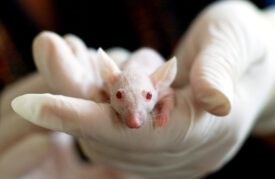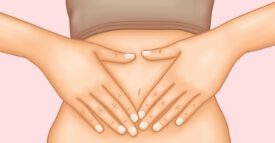Anti-aggression and anxiolytic effects of prebiotics in mice
One can hear more and more information about the microbiota-gut-brain axis, the bidirectional interaction between the intestinal microbiota and the central nervous system nowadays, this has become a hot topic. We are becoming increasingly aware that gut microbiota play a significant role in modulating brain functions, behavior and brain development. Pre- and probiotics can influence the microbiota composition, so the question arises, can we have an impact on our mental health by controlling nutrition and using probiotics? Burokas and colleagues aimed to investigate this possibility in their study (2017), where the goal was to test whether chronic prebiotic treatment in...
Psychobiotics: A next generation approach for treating mental disorders
Psychobiotics are helpful bacteria (probiotics) or support for these bacteria (prebiotics) that influence the relationship between bacteria and brain. Human digestive system houses around 100 trillion of these bacteria, outnumbering the human body cells 10:1. Probiotics provide a great deal of functions vital to our well-being, like supporting the digestion process and improving the absorption of nutrients. Based on the latest research, helpful gut bacteria that can also positively affect the brain – psychobiotics – benefit people suffering from chronic stress, poor mood, or anxiety-like symptoms (1). There are 3 ways how psychobiotics can affect your mental health. Brain chemicals like serotonin,...
Let me tell you the story of New Brain Nutrition
This month, I started as dissemination manager at New Brain Nutrition. This means that I will make sure that the information generated in this research project is spread out to society. Together with the dissemination and communication team of New Brain Nutrition, I strive to inform and educate as many people as possible about how nutrition influences our gut, our brain and our mental health. Now I didn’t study communication or marketing. Rather, I studied Cognitive Neuroscience and did a PhD on brain connectivity in adults with ADHD. But while doing this PhD research, I became very interested in science...

On: 30 July 2018
ADHD & dietary treatments
In every classroom approximately two children are diagnosed with Attention Deficit Hyperactivity Disorder (ADHD). They struggle with attention problems and hyperactive and impulsive behavior. This has negative consequences for these children. For example, they can have difficulties learning, it puts them at risk for other psychiatric problems, and it can cause parent-child relationship problems. Therefore, children with ADHD do need some sort of treatment for optimizing the quality of their lives. After psycho-education to the child, parents and teacher, medication is often the first choice of treatment because it is evidence-based. However, there is a growing group of parents that...

On: 27 June 2018
How your intestinal bacteria affect the gut brain axis
Recently, the idea that gastrointestinal microbiota are able to affect host behaviour is gaining momentum and it is based on studies conducted with animal models but also in humans with neurological disorders. However, the mechanisms that underlay this complex interplay between gut, brain and microbiota are incompletely understood. Here we discuss recent findings on how microbial products could potentially affect the gut-brain axis. Intestinal microbiota, grow through the fermentation of undigested carbohydrates that end up in the large intestine. It was shown that absence of microbes or disruption of the microbiota, lead to increased populations of impaired microglia cells in...

On: 19 June 2018
Personalized nutrition as an aid for mental health?
When Alice’s mother first contacted our team to get more information on the dietary intervention at New Brain Nutrition, she mentioned that her daughter seems to be on edge all the time. On a typical day, Alice would be triggered easily over seemingly small things and stay upset for a long time. She told us that these emotional problems caused not only very strained and cheerless moments on the weekends and evenings, they also interfered notably with Alice’s social life. In between her angry or sad moments, Alice seems to be a perfectly happy and energetic 11-year old. Alice’s attention...


